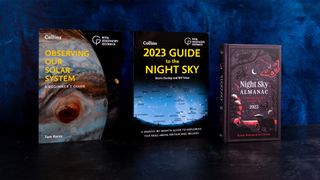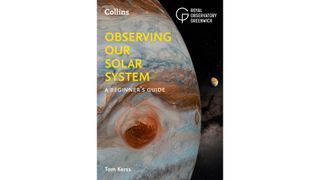
Autumn is quickly approaching, as evidentiary signs of the season appear as processions of neighbors’ overly enthusiastic fall lawn decorations and the addition of pumpkin spice to beverages at every major food chain. For stargazers and photographers, it means the coming end of another Milky Way season as the galactic center dips below the horizon of the northern hemisphere, and an opportunity to set their sights on the coming year’s astronomical highlights.
World Space Week celebrates Sputnik 1, humanity’s first satellite built and launched into orbit on October 4, 1957 — an event which set off the space race that eventually landed American astronauts on the Moon in 1969. Today, World Space Week is celebrated across the globe by educational centers, museums, space agencies, astronomy clubs, aerospace companies and more through STEM outreach and special activities.
UK-based book publisher Collins, which has published a wide range of educational content since 1819, is joining in the festivities by hosting a week of giveaways, free resources, and online events with astronomers, authors and experts in all things night sky. Collins Astronomy Week kicks off October 4 with Tom Kerss, respected astrophotographer, astronomer and author, who will talk about the future of Solar System exploration, and how you can tour our cosmic neighborhood with your own telescope at home.

His book Observing Our Solar System takes readers on a journey of how we came to know our celestial neighbors, from humanity’s earliest perceptions of the night sky to mapping the stars with satellites of our own. Observing Our Solar System serves as an excellent beginners’ guide for emerging stargazers, and a concise reference for amateur astronomers. Kerss writes in a manner accessible to night sky viewers of any level, with or without a telescope, and provides high quality photos and illustrations to help you track things like phases of the Moon and positions of the planets, as well as events like eclipses, planetary conjunctions and meteor showers. Observing Our Solar System comes with a stamp of approval from Royal Observatory Greenwich and is perfect for beginners and seasoned astronomers alike.
If you want a sneak peak into what next year has in-store for night sky nerds, the Night Sky Almanac 2023 is definitely worth a look. And I mean it. Seriously, look at it. This book is gorgeous. The cover alone is a work of art, and its pages are no different. Night Sky Almanac 2023 is masterfully illustrated and organized and offers global coverage across both hemispheres for exploring the constellations and Moon phases through the seasons with star maps and calendars for every month. It is an amazing companion for any night sky enthusiast and would be a fantastic gift for anyone who likes outer space and nice things.

Now, if you really want to nail down your stargazing plans for next year, the 2023 Guide to the Night Sky is a must-have. It’s published by Collins and is a bestselling handbook to keep you looking up. The book devotes half a dozen pages to every single month of the year, outlining notable events with star maps, planetary projection charts and seasonal constellation guides. It includes a wonderfully detailed map of the Moon, and helps you find optimal night sky viewing locations to avoid the ambient light of nearby cities.
2023 Guide to the Night Sky offers so much detail, it comes in three editions, depending on exactly where in the world you plan to do your stargazing — Britain and Ireland, North America, and Southern Hemisphere versions all offer unique perspectives of the night sky, and a wealth of information on how best to explore it.
All of these books are available from Collins publishing, and during World Space Week and Collins Astronomy Week, you can use code ASTRONOMYWEEK30 on collins.co.uk for a 30 percent discount on all their astronomy books, including those recommended above. Collins Astronomy Week online events are free to the public and will feature exciting giveaways like Celestron telescopes and book bundles. Check out what they have planned and sign up for Collins Astronomy Week events here
Join our Space Forums to keep talking space on the latest missions, night sky and more! And if you have a news tip, correction or comment, let us know at: community@space.com.
Get the Space.com Newsletter
Breaking space news, the latest updates on rocket launches, skywatching events and more!
